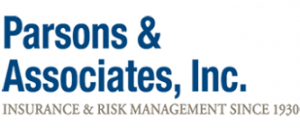Are you insured for a sewer backup?
Are you insured for a sewer backup?
What goes up must come down.
But sometimes, what goes down comes back up.
In fact, it’s an increasingly common problem: According to the Civil Engineering Research Foundation, the number of sewer back ups is increasing by roughly 3 percent each year. Overworked, clogged or damaged sewers can send raw sewage running back up through your drains—not only causing expensive, difficult-to-repair water damage, but also creating potentially dangerous health hazards.
While we might think such flooding from a backed-up sewer line is just the sort of thing a commercial property policy should cover, usually it doesn’t. The standard policy specifically excludes water damage, including “water or water-borne material, which backs up through sewers or drains or which overflows or is discharged from a sump, sump pump or related equipment.”
Fortunately, what the standard policy taketh away, an endorsement to your policy can giveth back. Many—though not all—carriers will offer coverage for “direct physical loss … caused by water or waterborne material, which: 1.) backs up through sewers or drains; or 2.) overflows or is discharged from a: a. sump, sump pump, or b. related equipment.”
Insurance-wise, that’s a simple solution. There also are some preventative measures you can take and share with staff and customers to help avoid a backup in the first place:
• Don’t dump grease down the drain; it will harden either in your business’s plumbing or in the main sewer and, over time, cause clogs.
•Not all paper is meant to be flushed. In fact, toilet paper is specially designed to deteriorate quickly to avoid clogs and backups. Other papers, including paper towels, are not.
• Install what’s called a backwater prevention valve in your main drain. It’s a special valve that allows only one-way flow. Properly installed, it will keep any backup that does occur out of your building.
As always, when it comes to coverage for sewer backups or any other insurance issue, you should talk specifics with us, your professional, independent insurance agent. We know you; we know your policy; and we’re always here to help.









Leave a Reply
Want to join the discussion?Feel free to contribute!